Knitting in Marian Art
Knitting in Marian Art
– Answered by Father Johann Roten, S.M.
Q: Can you tell us about Mary knitting?
A: There exist a variety of representations of Our Lady spinning, weaving, doing embroidery, or with a spindle and/or distaff in her hand or close by [see below popular and more recent representations of this theme in color]. This typically feminine activity is frequently related to the motif of the Temple Virgin and occurs also in depictions of the Annunciation and the Holy Family of Nazareth. The legend of Mary's life in the Temple (from age three through twelve) is presented in the Pseudo-Gospel of Matthew, and is based on the Proto-Evangelium of James. According to the latter Mary one day, although already betrothed to Joseph and living in his house, was called to the temple with other maidens and given wool to weave a new curtain for the temple. While spinning this purple wool at home, she was visited by the angel of the Annunciation. Thus, spinning is one of the typical activities in representations of Mary's Annunciation, pregnancy and Joseph's doubt. Weaving is more typical for Mary's activities as Temple Virgin, and is frequently combined with representations of an angel bringing food or the presence of Mary's companions. There are depictions of Mary in old manuscripts where she is sitting in a group of women, her friends, at Nazareth and is either spinning, knitting or doing embroidery. Meanwhile, Joseph is teaching Jesus.
In the famous Tapestry of Our Lady in the Cathedral of Reims (tableau VI: Perfections of Mary) you see her sitting and weaving.
See the following illustrations (Schiller IV/2):
1. Esslingen (Germany), Frauenkirche, Stained Glass Windows, 1320-25: Mary weaving in the Temple
2. Nürnberg (Germany), Grossgründlach, Mary Weaving, 1504-08, (547)
3. Toulouse (France), Ivory Chest/box, beginning fourteenth century, Mary Weaving (548)
4. Painted panel, tempera, 1503, Riggisberg, Mary in the Temple with other maidens working
Figure 1
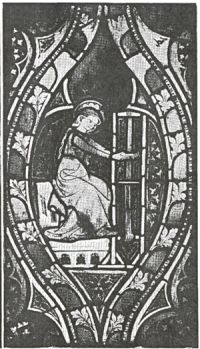
Figure 2
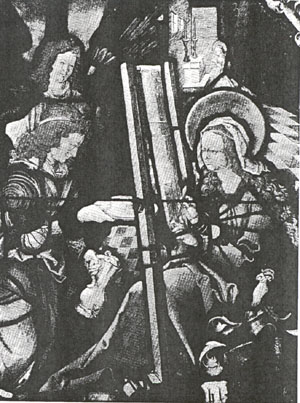
Figure 3
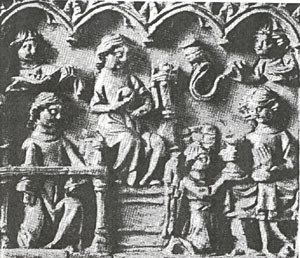
Figure 4
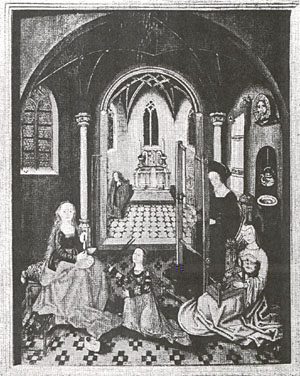
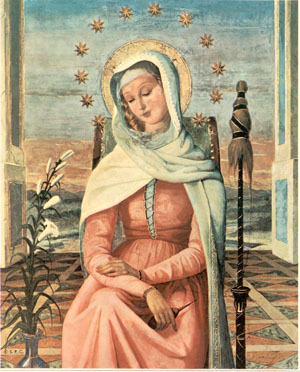
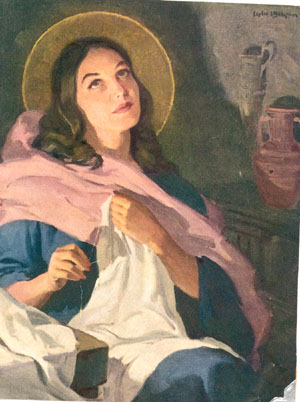
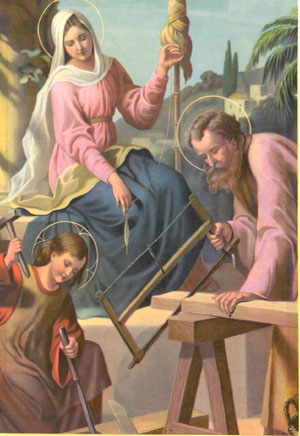
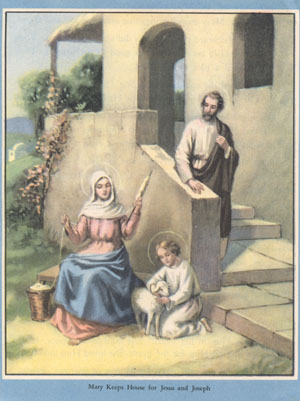
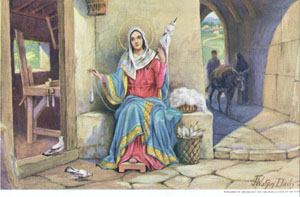
All About Mary includes a variety of content, much of which reflects the expertise, interpretations and opinions of the individual authors and not necessarily of the Marian Library or the University of Dayton. Please share feedback or suggestions with marianlibrary@udayton.edu.
